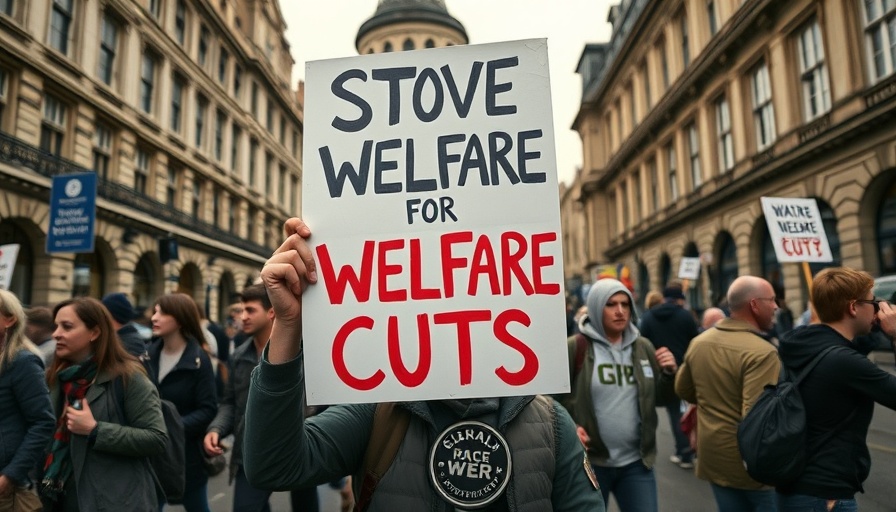
Understanding the Implications of UK Welfare Cuts
The recent announcement regarding UK welfare cuts has sparked considerable discussion among policymakers and charities. These cuts, which are positioned as necessary for fiscal responsibility, could lead to an increase in poverty levels across the nation. Various organizations, including notable charities, are sounding the alarm on the potential repercussions for the most vulnerable populations.
Historical Context and Background
This isn't the first time welfare cuts have been implemented in the UK. Historical analyses indicate that similar measures in the past have often led to increased rates of homelessness and food insecurity. Each wave of cuts tends to disproportionately impact low-income families, the elderly, and individuals with disabilities. Understanding this pattern is crucial when considering the current proposals.
Counterarguments and Diverse Perspectives
While charities emphasize the dangers of rising poverty, government ministers argue that cuts are necessary for the nation’s economic health. They claim that reducing welfare spending fosters independence and drives individuals toward employment. However, the contention remains; many experts argue that without adequate support systems, this independence remains an unfeasible goal for those struggling to make ends meet.
Relevance to Current Events
As the global economy continues to grapple with uncertainties—including inflation and supply chain disruptions—the implications of welfare cuts are magnified. How the UK addresses its welfare system amidst these challenges can set precedents for other countries facing similar issues.
Future Predictions and Opportunities
Looking ahead, there is a real likelihood that these welfare cuts will not only escalate poverty but also strain public health resources as more individuals turn to overburdened healthcare systems for support. There are opportunities for businesses and community leaders to advocate for more sustainable and equitable practices within the economic framework, emphasizing corporate social responsibility and sustainable business practices in their strategies.
Common Misconceptions About Welfare Cuts
One significant misconception is that welfare cuts primarily impact those who 'do not wish to work.' In reality, myriad barriers prevent individuals from entering the workforce, including mental health issues, caregiving responsibilities, and lack of affordable housing. This issues further complicate the narrative surrounding dependency versus empowerment.
Actionable Insights: Creating Change
Citizens can engage in local community efforts aimed at supporting those affected by welfare cuts. By promoting workplace diversity and supporting local charities, individuals can contribute positively to their communities amid policy changes that threaten the wellbeing of vulnerable populations. Business leaders are urged to consider how their practices can support broader social initiatives to offset harm from such cuts.
In conclusion, the ongoing dialogue surrounding UK welfare cuts is critical not only to understand today’s socioeconomic landscape but also to envision systemic solutions that prioritize the dignity and well-being of all citizens. Stay informed about the implications of these reforms and consider how you can engage in meaningful action to promote equitable support in your community.
 Add Row
Add Row  Add
Add 



Write A Comment